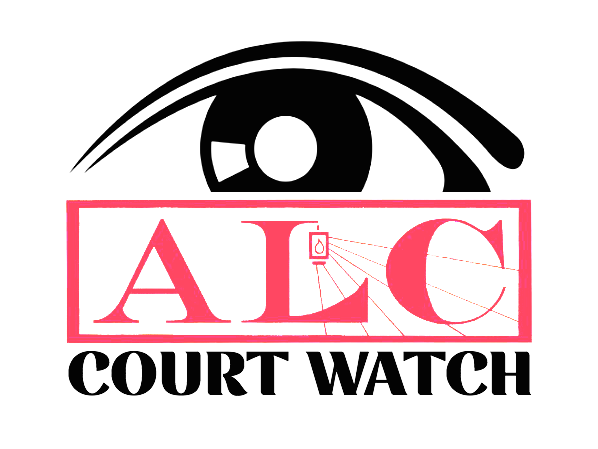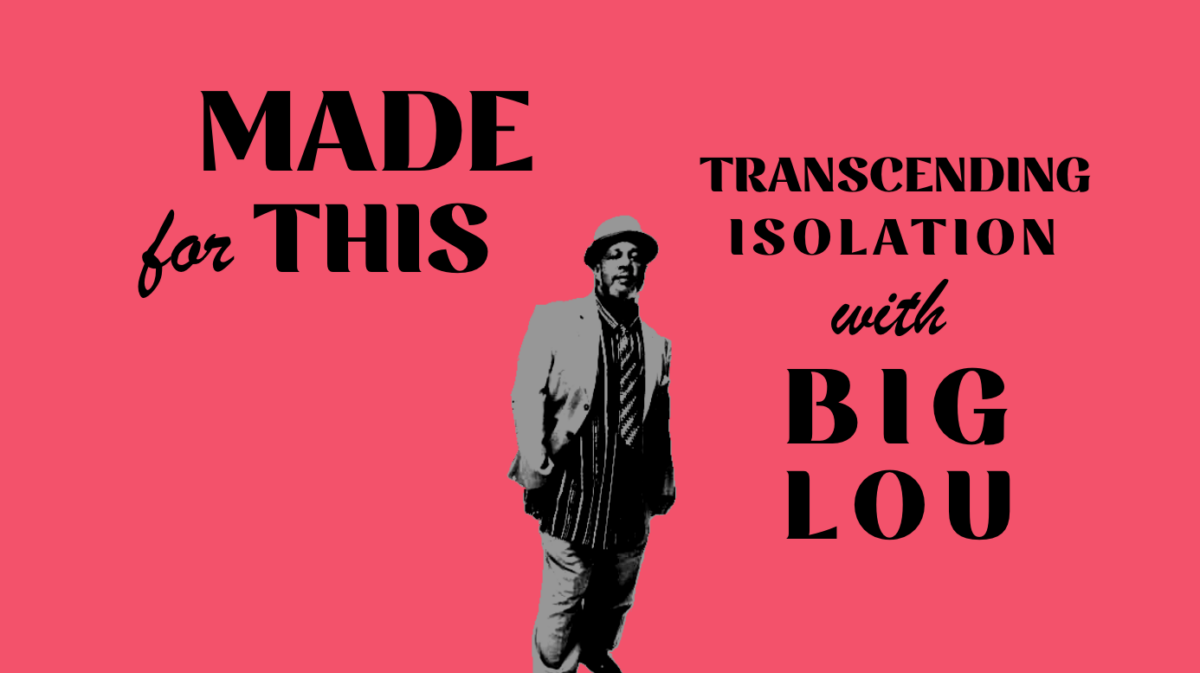an interview with Alexander “Big Lou” Lewis
by Autumn Redcross
Life under COVID-19 has so many of us approaching life in ways that feels restrictive and unfamiliar. The threat of contracting the virus – or worse, carrying it to others unknowingly – has governments requiring us to stay put and distance ourselves from others as much as possible. And this is difficult. The isolation is intense. The stress wraps you like a blanket.
It could be worse. It is for some. Others know of a time that feels lower, deeper, and more enclosed. Imagine being imprisoned during a pandemic. “Prison has a way of breaking you down,” says Alexander Lewis of Pittsburgh, PA. Friends and colleagues call him Big Lou.
“Constant pressure,” he says. Do you feel it? In prison, Lou adds “you’re used to functioning under constant pressure. You can handle some pressure, here or there, but constant?” This stint, what we’re living now, is no joke. Neither was his.
Big Lou is characterized as a violent offender. In legal terms, violence involves the threat or actual harm to others, Lou robbed banks and knew his actions were dangerous. Yet, Lou challenges the definition of violence. “Violence can be not having food to eat. Violence can be the tear in a mother’s eye. Violence can be a resistance to oppression.” Violence is not always physical.
“…Violence was something that was in the air at all times,” Lou notes. After all, “this country was built on violence.”
Lou considered his offenses to be a confrontation with life and death. “If I was going to fight, I’m taking it to the extreme.” However, his aggression was always targeted. For Lou, Robbing banks in the late 60’s and early 70’s was a means to an end. It was about “liberating and repossessing.” Big Lou was interested in building his community, not hurting it. However he “didn’t see the penitentiary around the corner.”
Big Lou spent 37 years behind bars. He attributed his survival to his experiences on the streets prior to prison. “I knew how to deal with racism because I came from a racist town.” Referring to the correctional officers and guards who failed to protect him in prison, Luo noted “I probably busted more cops than I did people on the street.” His resistance to state violence was born from the “love for [his] people and mankind.”
“I grew up with a love for my community, our elders, and the women who held up our community – and when I say up, I mean up!”
In the Homewood neighborhood of Pittsburgh, Lou recalls that everyone had a place and purpose, and that all roles of community members functioned together. Homewood is 98% Black/African-American and as higher unemployment and poverty rates than other Pittsburgh neighborhoods. “Even the hustlers were included. That’s what made us rich when we were poor because we looked out for one another. I never forgot the magic of the family working together. I took that with me.”
He explains, “Life has us going through trying to be the best individual. You are who you are, but if you’re not interacting with anyone else, it takes from the essence of what you are meant to be.” Believing that learning is achieved through self-discipline, Lou had made himself something akin to a vision board on the walls of his cell. He called it his “Wall of Reality,” and used it to judge himself against the things he placed on the wall. This way he could monitor himself, in order to craft his destiny.
“The grind was hard, but it was worth it… to be there!” For Lou, “the biggest hope and dream” was discovered by and manifested for him. In the DOC, he found friendship, conviction, and solidarity in the gospel of African Communalism. Lou found himself at the front lines of militant struggle for global solidarity against U.S. and Western imperialism – with members of the Black Panther Party, The Black Liberation Army, The San Francisco Brothers (SF8), The Weather Underground, and the Republic of New Africa. “We had sit-ins, marches, riots…but my deepest struggle was my [own] rage.”
“I had to change before I came out. The violence was part of my piece, but I was going to have to control part of my emotions and feelings. I had to come out of and learn how to handle it if I was to become a vital part of our community.” So, he did in 2004.
In 2017, the United States Sentencing Commission published a report detailing the effects of aging on recidivism among federal offenders. Amber Epps, author, professor and member of the Elsinore-Bennu Think Tank for Restorative Justice, has noted this report while reading to groups in prison. Amber’s brother is currently incarcerated and she reflects on this in her introduction to Life Sentences: Writings from Inside an American Prison (2019). Epps states that it is more likely that a person without a record would commit a so-called violent crime, than it would be for someone who’s been incarcerated for decades to re-offend.
In February 2020, at a conference celebrating the commutation of Robert “Faruq” Widman, Secretary of Corrections, John Wetzel cited the US Sentencing Commision’s report. Wetzel stated that re-offense and recidivism substantially decrease in people over the age of 40. Faruq expressed his belief in building community with the help of returning citizens in this simple statement: “We need them.”
Our incarcerated elders have amassed a wealth of wisdom, professional skills, and understanding of human relationships, allowing them to improve the neighborhoods and communities that they’ve been barred from for so long. As Amber Epps suggests, in their communities “[elders] could continue to teach, rebuild, mentor, and offer support as they do for fellow inmates, but on the outside. I can’t stop imagining the impact they could have.”
Big Lou agrees, “These people are able to reach levels of understanding that help them to commit fully.” In prison, he says, “our voices had never been able to get over the wall.” Lou believes that “the institution does not want to shine the light on us.” Seemingly invisible to the outside population, many people choose to self-educate and increase their self-knowledge during their time inside prison. “Double life, long, long time but didn’t stop the work that they did.”
As a Pittsburgh native and returning citizen, Big Lou contends, “I didn’t miss my calling.” After all, he is not alone. Big Lou grounds work in meaningful conversations, teachings and lessons with others affected by state violence and prison. In this way, he sees to it that “no one is left behind,” especially those who’ve remained incarcerated after his release. “When I’m walking with them, then I can’t go wrong.”
Big Lou is currently leading an initiative to educate and support his neighbors in McKeesport, Pennsylvania’s senior high-rises. His project provides resources and information and is supported by the Elsinore-Bennu Think Tank and a sociology class he takes at Duquesne University. This work is an act of community engagement rooted in restorative justice. “We’re about helping to save lives and to bring about a better life.”
Some reentering citizens are like brothers to Big Lou, and are equally committed to building community. Faruq, Foster, and T-Boo are among those formerly incarcerated elders among us who share ambitions steeped in restorative justice. Having experienced imprisonment, they are now “trying to uplift and give something back to our communities. We knew we had to work on giving back,” Lou explains.
Big Lou wants to build community by “helping people mentally, physically and spiritually.” He is developing the infrastructure for the “betterment of our communities. Raising of others’ souls.” He knows that with his experience, he “can tap into that piece where others cannot reach. We can talk to people coming out of the penitentiary.”
“Prison is something we went through where we had to have tactics and strategies to cope. Learning the art of being able to handle a situation – even though you are in a bad situation.” Lou was made for this.
“I had an armor when I went into the belly of the beast” which is how Big Lou survived.
The pandemic now surrounds us like a beast. The shutdowns and lockdowns amidst COVID-19 are restrictive and unfamiliar. You may feel imprisoned and you may feel its pressure. Big Lou knows how to transcend confinement and because of this, can help us find our way.

